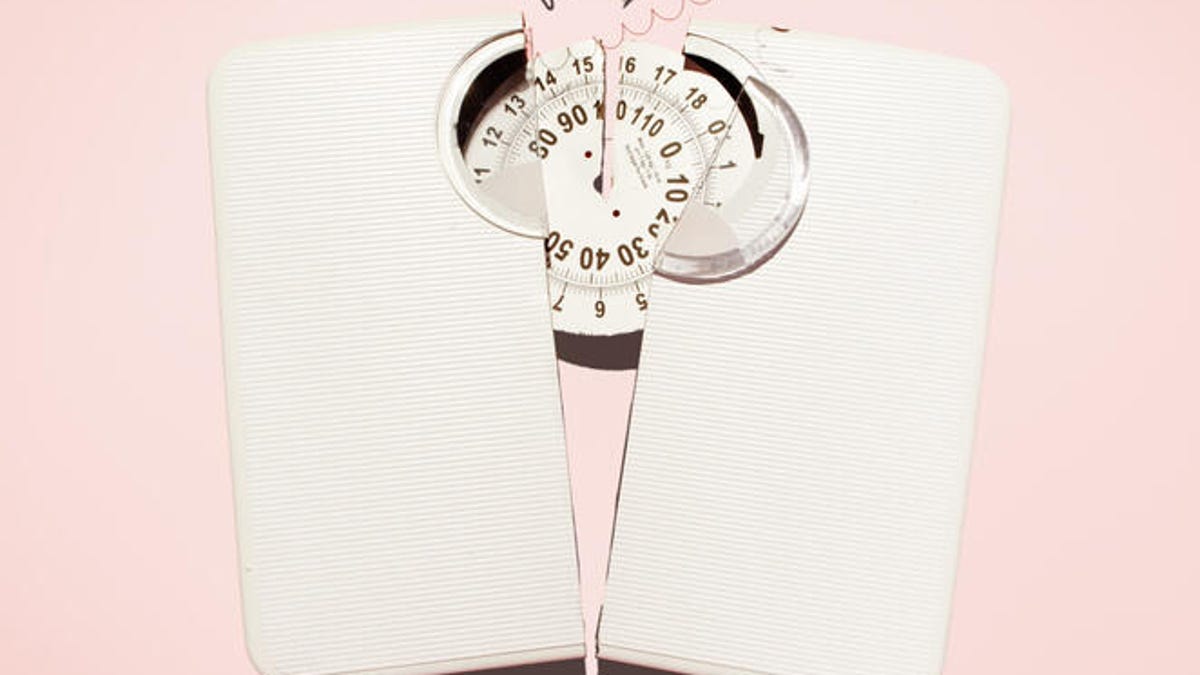 Why You Can Trust CNET
Why You Can Trust CNET How Often Should You Weigh Yourself, Really?
Weighing yourself every single day might be overkill, and can even be detrimental. Experts explain.

Weight is one of the most basic facts about your body, along with height and eye color. On its own, it doesn't mean a whole lot for your health. But it carries a ton of baggage and stigma -- your size can affect how much you get paid, the quality of your health care and more, making weight a loaded topic. With so much on the line, it's no wonder that just stepping onto the scale can bring up a lot of emotions.
So, how often should you weigh yourself at home, if ever? It's complicated. According to registered dietitian Alana Kessler, it's a personal decision. "Some people find knowing their weight to be motivating and nontriggering, while others find weighing themselves to feel more like a judgement day and can trigger limiting beliefs like unworthiness and shame," says Kessler.
However, there are some clear cons to weighing yourself too often. Keep reading for more guidance from Kessler and Talkspace therapist Kate Rosenblatt.
4 cons of weight-tracking
What's in a pound?
You may think you weigh a certain number, but the truth is that hardly anyone weighs the same day after day. "In general, weight fluctuates up to 3-4 pounds daily due to water weight or lack of moving bowels, so I don't feel weighing oneself daily is necessary or a good measure of true weight loss," says Kessler.
It seems pointless to try to track something that is essentially a moving target. If you have a "goal" weight in mind, you might hit it one day, but then the next day it might change. Then what? It's a slippery slope when your goals are set on something that is ever-changing and naturally fluctuates.
Using the scale to cope
It's normal to crave control when life is hectic or feels overwhelming. But it's easy to overfixate this need for control onto your body, or exercise and food.
"I want to validate that it is perfectly normal to want to feel some sense of stability or peace when life feels a bit unsure, but there are healthy and unhealthy ways to meet this need," says Rosenblatt. "To the extent you might find yourself turning to an unhealthy coping mechanism, like ritually weighing yourself and basing some of your self-esteem on the number that day, it might be time to explore healthier ways of coping."
Your self-worth may be affected
"Weighing yourself daily, or regularly, can be harmful to someone's self-confidence because it can almost create this false narrative of 'My self-worth is conditional: I am either good or bad based on the number on the scale,'" says Rosenblatt.
Your sense of self-esteem is essential for your mental health and overall well-being. "Having low self-esteem has been shown to be a risk factor in the development of an eating disorder, or disordered eating, so it is crucial to ensure we're building a solid foundation of a strong sense of self that is not conditional on, ideally, most anything -- like the number on the scale," says Rosenblatt.
On the other hand, some people can weigh themselves daily without running the risk of knocking their self-confidence. This is why, again, knowing what works for you (and whether the habit is healthy or not) takes self-reflection.
Your weight should never define your self-worth.
Weight doesn't equal health
Weight is not the end-all-be-all of health. Too many people think that someone who looks thin is inherently healthy, and someone in a larger body isn't. This is just not true. You can't tell a lot about someone's actual health status just by looking at them.
"There are many things that contribute to the number on the scale -- including bone density, muscle mass and water weight," says Kessler. Understanding that many factors are at play when it comes to weight is key to a healthier perspective and learning not to look at weight as directly tied to your choices or level of fitness.
"However, even though we know this -- the weight indoctrination is hard to break and can become a source of anxiety and obsession -- even to the point of becoming less 'fit' because muscle weighs more than fat and can increase the number on the scale," Kessler says.
Alternatives to weight tracking
If you're trying to lose weight, find another way to measure your results
Notice how your clothes fit. Do they feel looser or more comfortable? Take stock of how you feel physically. If you're feeling better and more energetic as a result of eating nutritious foods, working out and taking care of yourself, that's more than enough reassurance that you're on the right path.
Let only medical providers weigh you
"Many of my clients have found it helpful to only get weighed by their doctor or dietitian, in lieu of having a scale at home," says Rosenblatt. "Many of these clients have shared that they eventually felt a sense of freedom by having that boundary around either not weighing themselves anymore, or not knowing their weight. You can request your medical provider not tell you your weight, if it feels too triggering to know."
Write a goodbye letter to your scale
"If you have tried to stop weighing yourself, but find it difficult to do, I have also worked with clients who found longer-term effects from having a proper goodbye 'ceremony' with their scale," says Rosenblatt. If you feel the scale is becoming an unhealthy attachment, take the time to say a proper goodbye, and then let it go.



